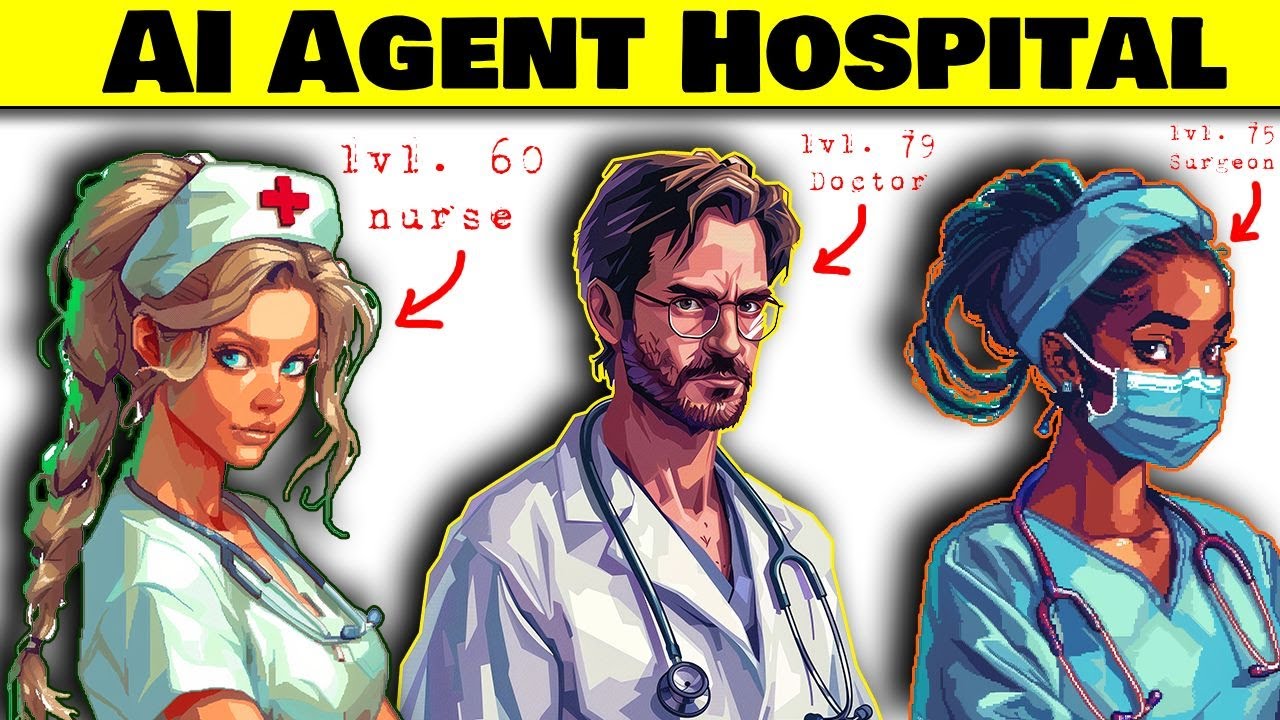The video discusses the concept of Agent Hospital, where AI doctors trained in simulations, powered by large language models like GPT-4, outperform human doctors in treating patients. These AI doctor agents continuously learn and improve their treatment approaches without the need for manually labeled data, demonstrating potential in revolutionizing healthcare by enhancing medical expertise and treatment outcomes.
The video discusses the concept of Agent Hospital, where AI doctors and staff, powered by large language models like GPT-4, outperform human doctors in treating patients. The AI doctors in Agent Hospital are trained in a simulation that allows them to accumulate experience from successful and unsuccessful cases. The simulation experiments demonstrate that the treatment performance of AI doctor agents consistently improves on various tasks, achieving a state-of-the-art accuracy of 93% on a subset of the med QA dataset after treating around 10,000 patients.
The paper also delves into the use of large language models for scientific research, showcasing how AI language models can act as scientists by formulating hypotheses, running experiments, and analyzing data. The AI models are trained in simulations to conduct controlled experiments at scale, potentially yielding insights that can generalize to the real world. However, the idea of AI models contributing to scientific research has sparked controversy and negativity among certain demographics, prompting discussions on the ethical implications of AI advancements.
The core framework of the Agent Hospital strategy is called Med Agent Zero, which involves the creation of a medical record library and an experience base for successful cases. The AI doctor agents continuously learn and improve their treatment approaches without the need for manually labeled data. Through a process of patient queries, medical record retrieval, and reflection on failed treatments, the AI doctors in Agent Hospital enhance their diagnostic and treatment capabilities, leading to a progressive increase in precision and accuracy over time.
The training of AI models in a simulation environment allows for rapid learning and evolution, with GPT-3.5 and GPT-4 models outperforming human experts in medical diagnosis tasks. The AI agents in Agent Hospital engage in daily planning and dynamic planning by fulfilling their medical responsibilities during shifts and learning outside working hours through studying past medical records and textbooks. The use of text embedding into vector space facilitates the storage and retrieval of medical data, enabling the AI agents to expand their knowledge base and improve their diagnostic accuracy.
In conclusion, the concept of Agent Hospital demonstrates the potential of AI in revolutionizing healthcare by training AI doctor agents in simulations to enhance their medical expertise and treatment outcomes. The use of large language models like GPT-4 enables AI agents to learn, evolve, and outperform human doctors in diagnosing and treating various medical conditions. While facing backlash and controversy from certain groups, the advancement of AI in healthcare holds promise for improving patient care, increasing diagnostic accuracy, and potentially addressing healthcare disparities in underserved communities.
